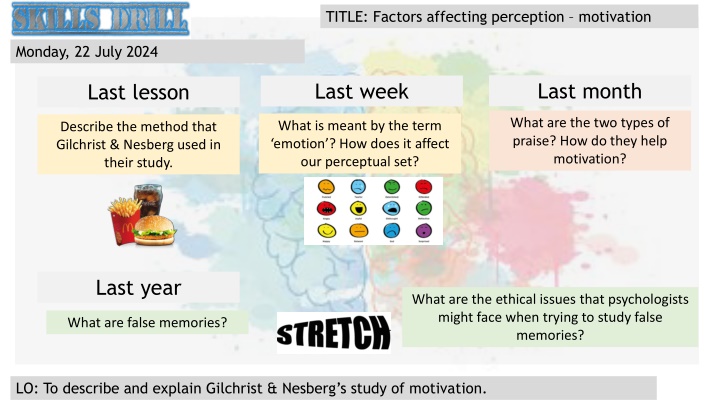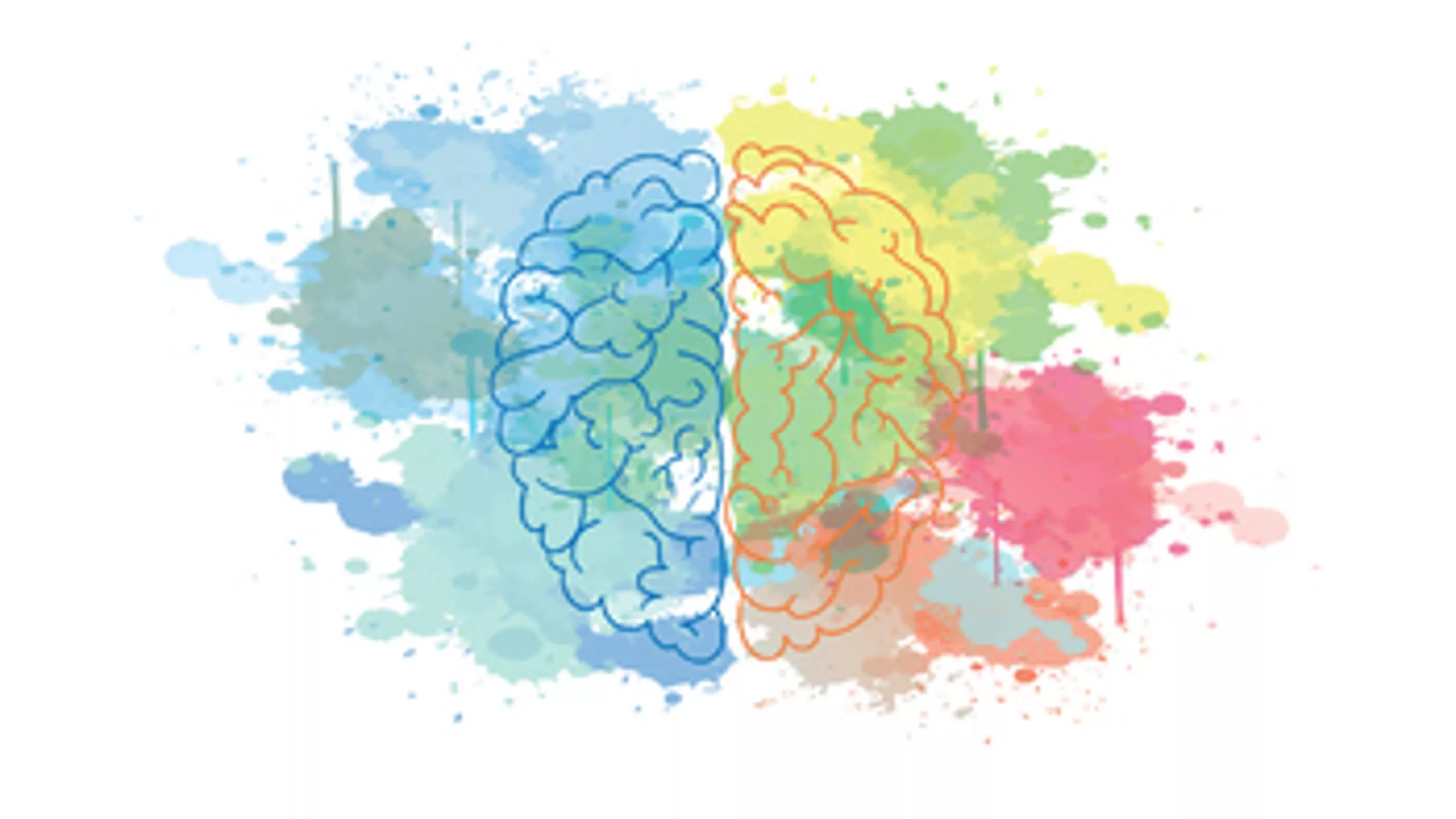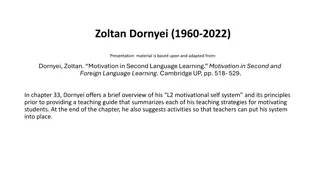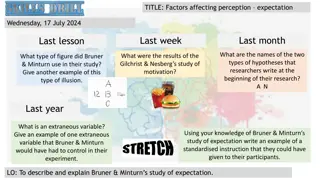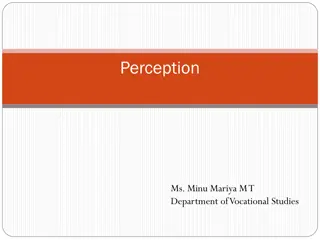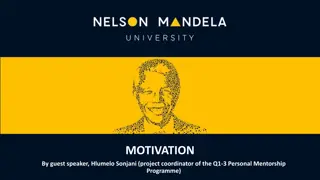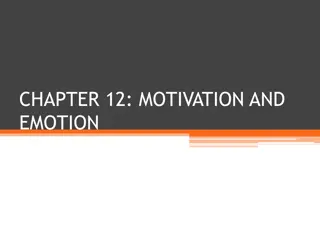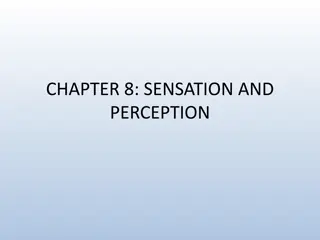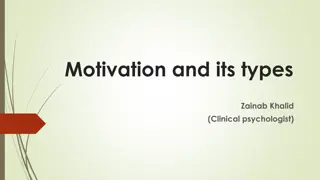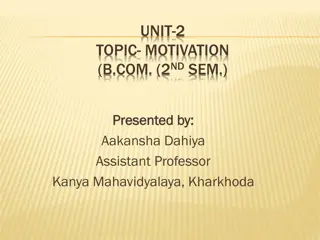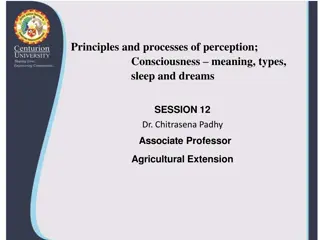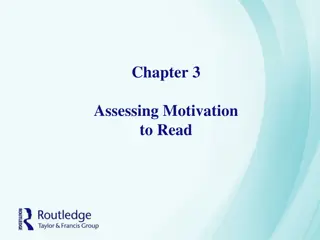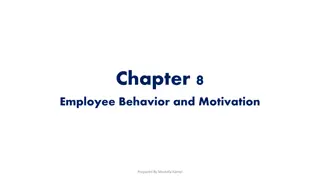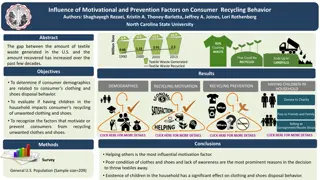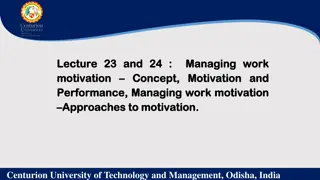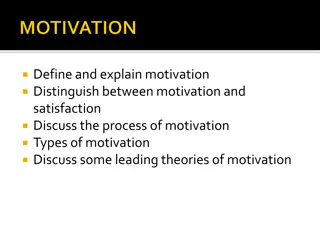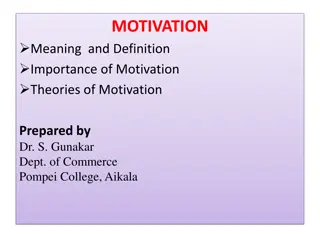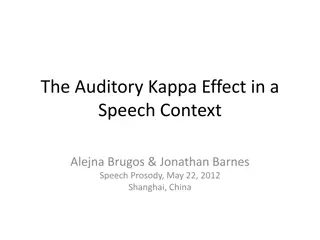Factors Affecting Perception and Motivation Study
Factors such as hunger can influence perception and motivation, as shown in the study by Gilchrist & Nesberg. Their research involved university students who went without food for 20 hours and were tested on how hunger affected their perception of brightness in images. The results indicated that motivation, in this case hunger, can alter how individuals perceive stimuli, suggesting a connection between motivation and perceptual set.
Download Presentation

Please find below an Image/Link to download the presentation.
The content on the website is provided AS IS for your information and personal use only. It may not be sold, licensed, or shared on other websites without obtaining consent from the author.If you encounter any issues during the download, it is possible that the publisher has removed the file from their server.
You are allowed to download the files provided on this website for personal or commercial use, subject to the condition that they are used lawfully. All files are the property of their respective owners.
The content on the website is provided AS IS for your information and personal use only. It may not be sold, licensed, or shared on other websites without obtaining consent from the author.
E N D
Presentation Transcript
TITLE: Factors affecting perception motivation Monday, 22 July 2024 Last month Last week Last lesson What are the two types of praise? How do they help motivation? What is meant by the term emotion ? How does it affect our perceptual set? Describe the method that Gilchrist & Nesberg used in their study. Last year What are the ethical issues that psychologists might face when trying to study false memories? What are false memories? LO: To describe and explain Gilchrist & Nesberg s study of motivation.
Key term Perceptual set the tendency for our brain to notice some aspects of the environment more than others. To be set means to be fully prepared, anticipating what is coming so that we can act effectively Your motivation can influence what you pay attention to and what you ignore Motivation refers to the forces that drive our behaviour this can impact on our perceptual set LO: To describe and explain Gilchrist & Nesberg s study of motivation.
Perceptual set and motivation Aim: To investigate how motivation affects perception. Study design: Lab experiment. Method: -26 university students volunteered to go without food for 20 hours they could only drink water. - They were randomly allocated to one of two groups: one which went without food, and the other, a control group, which had normal meals during the 20 hours. - Participants show pictures on a screen for 15 seconds, then the screen would turn off, then they were told they would see the picture again, but they would not look the same. Their job was to adjust the brightness of the picture so that it looked the same as the one they had seen before. - They were tested at the beginning of the study (just after lunch), after 6hrs, and after 20 hours. LO: To describe and explain Gilchrist & Nesberg s study of motivation.
Perceptual set and motivation Results: Control group showed little difference in the memory of the brightness of the pictures as time went on. But as the experimental group became hungrier, they judged the pictures to be brighter. Conclusion: Hunger can affect the way that we perceive the images of food, which suggests that motivation affects perception. LO: To describe and explain Gilchrist & Nesberg s study of motivation.
1. Using the textbook, Write another evaluation paragraph for the Gilchrist & Nesberg study. 2. Complete the activities in your booklet. 3. Write a paragraph plan for the following 9 mark question: Outline and evaluate Gilchrist & Nesberg sstudy of motivation. LO: To describe and explain Gilchrist & Nesberg s study of motivation.
Q1. The participants in Gilchrist & Nesbergs study had to: a. Identify taboo words b. Fill in a questionnaire c. Adjust the brightness of a light d. Eat some chocolate cake. LO: To describe and explain Gilchrist & Nesberg s study of motivation.
Q2. Gilchrist & Nesbergs participants thought the study was about: a. Matching pictures b. Motivation c. Perceptual set d. Brightness. LO: To describe and explain Gilchrist & Nesberg s study of motivation.
Q3. Depriving people of food is an ethical issue because: a. Participants did not give their consent b. It may spoil the results of the study c. The study lacks control d. It causes participants some discomfort. LO: To describe and explain Gilchrist & Nesberg s study of motivation.
Q4. A strength of Gilchrist and Nesbergs study was: a. It included a control group b. It used real food c. It used an everyday real-life task d. It used an objective measure of perceptual set. LO: To describe and explain Gilchrist & Nesberg s study of motivation.
Q5. A major influence on reconstructive memory is: a. The time it takes to recall something b. Our level of intelligence c. Our social and cultural expectations d. The position of events in a story. LO: To describe and explain Gilchrist & Nesberg s study of motivation.
Lets think about what we have learnt today. 1. Tell me something new that you have learnt today. 2. What knowledge/skills have you used today from previous lessons? LO: To describe and explain Gilchrist & Nesberg s study of motivation.
